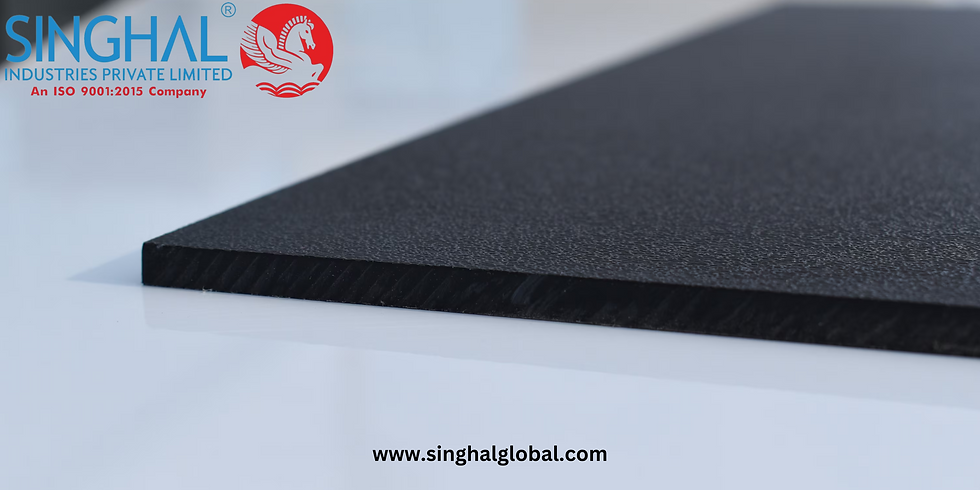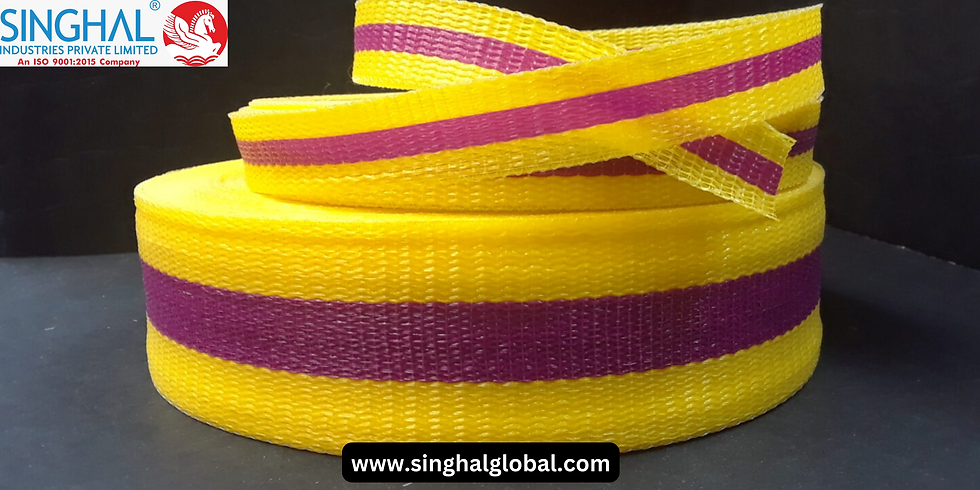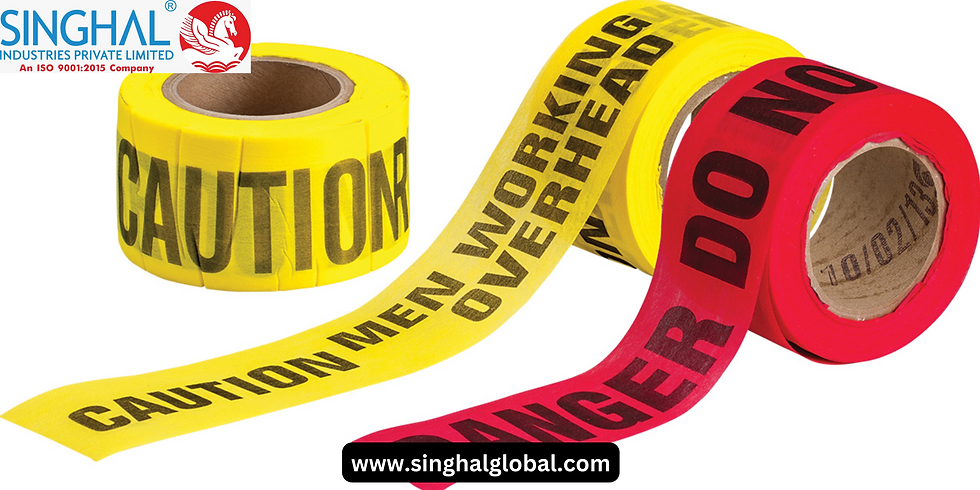A Comprehensive Guide to Recycling PP Jumbo bags
- singhalglobal group

- Jun 8, 2023
- 3 min read
Updated: Nov 22, 2023
Introduction:
PP (polypropylene) jumbo bags, also known as FIBCs (Flexible Intermediate Bulk Containers), are widely used for packaging and transporting bulk materials. These bags are durable, cost-effective, and versatile. However, like any other plastic product, the disposal of PP jumbo bags can have a significant impact on the environment.
Recycling is an effective way to reduce waste and conserve resources. In this comprehensive guide, we will explore the process of recycling PP jumbo bags and highlight its environmental benefits.

Sorting and Collection:
The first step in recycling PP jumbo bags is to collect and sort them. Collection can be done through specialized recycling programs, waste management companies, or designated drop-off points. It is crucial to separate the jumbo bags from other materials to ensure efficient recycling.
Inspection and Cleaning:
Once collected, the jumbo bags undergo a thorough inspection to identify any damages or contaminants. Bags with excessive tears or extensive soiling may not be suitable for recycling and should be disposed of properly. Clean bags are essential to maintain the quality of the recycled material.

Shredding and Granulation:
After inspection and cleaning, the PP jumbo bags are shredded into smaller pieces using industrial shredders. Shredding facilitates the subsequent processing steps and increases the surface area for melting. The shredded plastic is then granulated into small pellets for further processing.
Melting and Extrusion:
The granulated PP pellets are melted in an extruder at high temperatures. This molten plastic is then forced through a die to form a continuous shape, such as a filament or a sheet. The extrusion process helps to remove any remaining impurities and ensures a consistent quality of the recycled material.
Conversion into New Products:
The extruded PP material can be used to manufacture a variety of new products. It can be molded into different shapes, such as containers, pipes, automotive parts, and even new jumbo bags. The versatility of PP allows for a wide range of applications, reducing the demand for virgin plastic and conserving resources.

Environmental Benefits:
Recycling PP jumbo bags offers several environmental benefits. Firstly, it reduces the amount of plastic waste that ends up in landfills or oceans, minimizing the risk of pollution. Secondly, recycling conserves energy and resources that would otherwise be required for producing new plastic from virgin materials. Additionally, recycling reduces greenhouse gas emissions associated with the manufacturing process.
Promoting Recycling Awareness:
To encourage the recycling of PP jumbo bags, it is essential to raise awareness among businesses, consumers, and the general public. Providing easily accessible collection points, educating individuals about the benefits of recycling, and promoting sustainable practices can contribute to increased participation in recycling programs.

Conclusion:
Recycling PP jumbo bags is a crucial step towards reducing plastic waste and conserving resources. By following the steps outlined in this comprehensive guide, we can ensure that these durable bags are given a new life through the recycling process. Together, we can make a significant impact on the environment by embracing recycling practices and promoting a sustainable future.
Author Bio
Singhal Industries - Manufacturer of Flexible Packaging Product is the best bags manufacturer in the country. If you are planning to purchase any kind of bags products then you can choose from these products also manufacturer of pp jumbo bags manufacturer, pp jumbo bags manufacturer in Ahmedabad, pp jumbo bags manufacturers in delhi, Jumbo Bags etc.
Useful Articles Link
FAQs of PP Jumbo Bags Why Are Jumbo Bags Ideal For Chemicals and Fertilisers? Types of PP Jumbo Bags



Comments